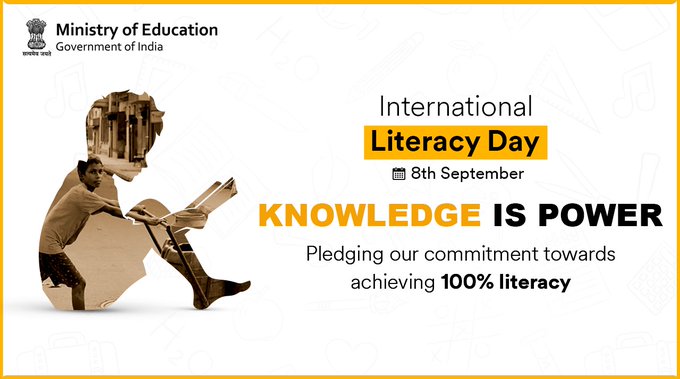
International Literacy Day 2020: UNESCO declared September 8 as International Literacy Day to raise awareness and remind people of the importance of literacy as a matter of dignity and human rights. The importance of literacy was first observed at the 1966 UNESCO’S General conference which stated- “The hundreds of millions of illiterate adults still existing in the world, make it essential to change national education policies.” The report emphasised the need for the real emancipation of the people and added that education systems across the world should provide the training required for children and working adults so that they can learn to read and write. “National educational plans should include schooling for children and literacy training for adults as parallel elements,” the report said.
Following the UNESCO’S General conference, the first International Literacy Day was celebrated on September 8, 1967 and this tradition has been held annually for over 50 years. Despite progress made, literacy challenges persist with at least 773 million adults worldwide lacking basic literacy skills today, as per UNESCO.
This year, the Literacy Day will focus on the changes and challenges in learning during the COVID-19 pandemic. According to UNESCO, “During Covid-19, in many countries, adult literacy programmes were absent in the initial education response plans, so the majority of adult literacy programmes that did exist were suspended with just a few courses continuing virtually, through TV and radio, or in open air spaces.” The Literacy Day will reflect on the innovative and effective pedagogies that can be used in youth and adult literacy programmes to face the pandemic and beyond.
The UNESCO education assistant director-general Qian Tang mentioned that the international community is focusing on 2030 with Sustainable Development Goals (SDGs) and has aimed to “ensure inclusive and quality education for all and promote lifelong learning” within its goals. The 50-year review of South Asia (which includes Bangladesh, India, Islamic Republic of Iran, Nepal and Pakistan) states that the large scale illiteracy is ever-present among adults.
Meanwhile, in India, as per the last census in 2011, a total of 74.04 per cent are literate, an increase of 9.2 per cent from the last decade 2001-11. The country will take another 50 years to achieve universal literacy, which is 2060, as per UNESCO.
Source:https://indianexpress.com/article/education/why-is-international-literacy-day-celebrated-6586973/

